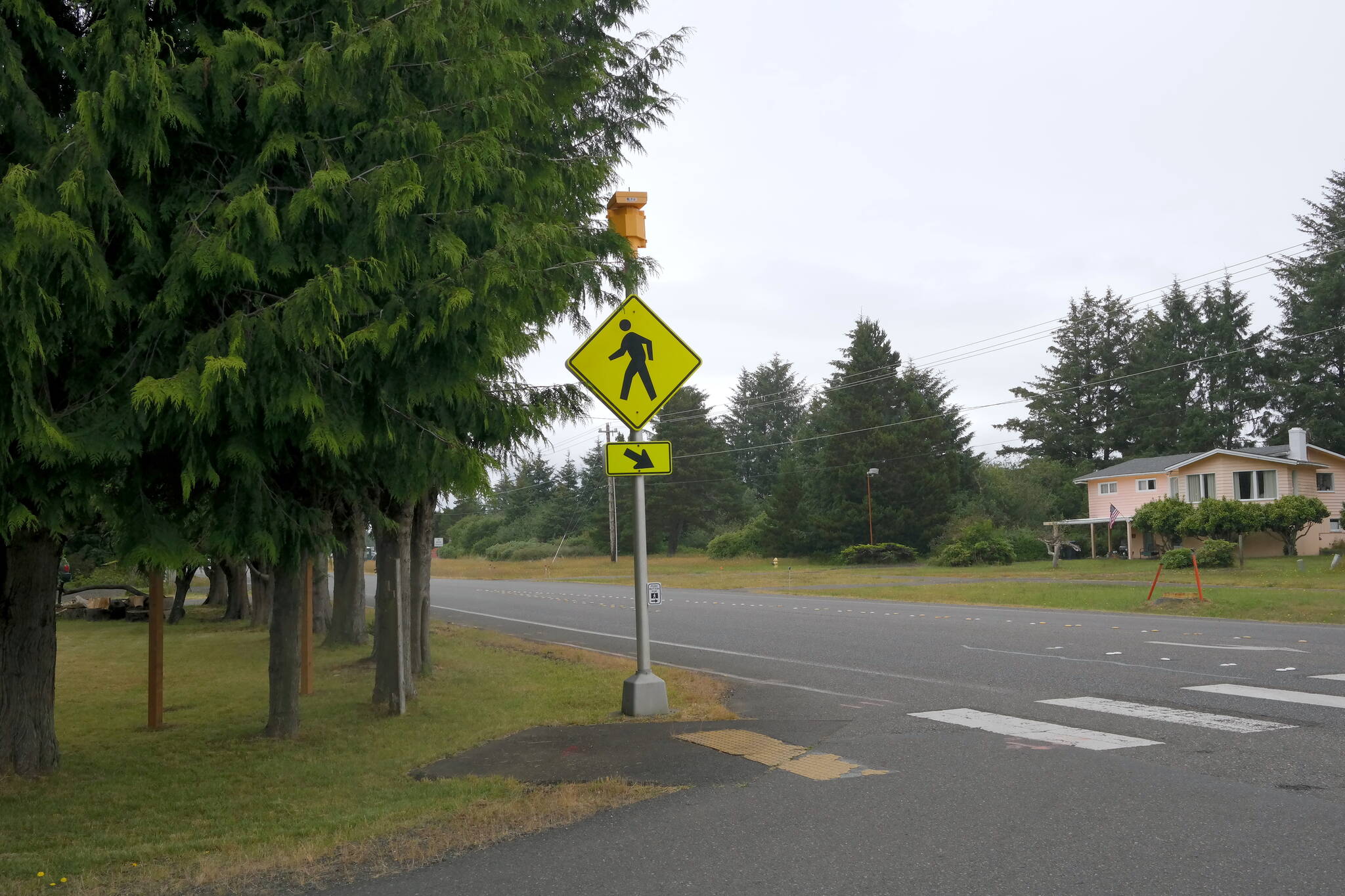The Ocean Shores City Council passed an ordinance Monday regulating how pedestrians can interact with drivers, a rule aimed to provide enforcement measures for certain types of panhandling, or begging, according to City Councilor Eric Noble and past city agendas.
Passing the law, however, required navigation of First Amendment legal precedent surrounding other municipal ordinances addressing panhandling.
Noble instructed an ad hoc committee to review a draft ordinance on panhandling, and the city then voted on the final ordinance Monday.
According to Noble, the ordinance is the “final piece” on homelessness that arose from roughly three years of city conversations on the topic.
Starting in 2019, the city imposed a string of moratoriums on the licensing and construction of homeless service shelters in Ocean Shores, which lasted until September 2021, when an ordinance changed zoning codes and allowed for the regulation and permitting of homeless services.
Monday’s ordinance, which added a section to the city code chapter on vehicles in traffic, prevents pedestrians from interacting with, “verbally” engaging occupants of vehicles and entering the roadway to engage with occupants of vehicles.
A roadway is the portion of the road designated for vehicles, not including the shoulder or sidewalk, according to state law.
“It’s just defining that (panhandlers) can’t obstruct traffic, whether it’s pedestrian traffic or vehicular traffic,” Noble said at an Oct. 10 council meeting. “They can’t walk out in the street and harass or do anything like that. It doesn’t impede them from doing the panhandling, it’s just focusing on how they are doing it.”
The ordinance bans pedestrians from standing in the “sight distance triangle” — the wedge of space between two intersecting roadways — except when waiting to cross the street.
According to the ordinance, the rule is meant to “promote the city’s fundamental interest in public peace, health and safety by regulating certain pedestrian interaction with occupants of vehicles.”
Despite the rule’s intent to address a certain type of behavior — panhandling — its language never makes any reference to “panhandling” specifically, nor does it mention begging or asking for money in public.
That discrepancy in language is largely because, when crafting the ordinance, the council worked with the city’s attorney to ensure the rule wouldn’t violate the First Amendment rights of pedestrians or panhandlers.
“We cannot say ‘you cannot panhandle’ — that’s illegal,” Noble said.
Noble was referring to legal precedent regarding other previous panhandling ordinances. In 2016, the Washington state Supreme Court deemed a city of Lakewood anti-begging ordinance unconstitutional, according to the ACLU of Washington. The court sided with a man named Robert Willis, who was convicted of violating the begging ordinance after standing near a city intersection holding a sign asking for help.
According to the ACLU, the Willis case explains that panhandling, solicitation and begging are protected as free speech under the First Amendment.
But that doesn’t mean all municipal ordinances intended to address panhandling create grounds for First Amendment battles.
According to an ACLU legal primer, laws regulating certain types of speech over others — “content-based” laws — are violations of free speech rights. Begging, for example, is a type of speech, which is why the Ocean Shores ordinance never mentions the word or its synonyms.
Instead, the Shores ordinance focuses on the manner of speech — how pedestrians interact with vehicles — rather than what, specifically, they say.
Unlike Ocean Shores, some Washington cities still have ordinances explicitly restricting “panhandling” despite the legal risk.
In Lacy, it’s unlawful for people to panhandle in certain places, such as near automated teller machines or public transit stations. Similar laws exist in Sultan, where it’s illegal for panhandlers to “coerce” people for money, sometimes called “aggressive panhandling,” which is banned elsewhere, or to panhandle during early morning and nighttime hours.
Other cities also have a larger number of panhandlers than Ocean Shores, where the behavior is uncommon. Councilor Frank Elduen said the ordinance is meant as a preliminary measure to ensure the city has something in place should the behavior increase.
Penalties for violation include small cash fines — an ironic punishment, Noble acknowledged, for someone begging for money.
“(The police) have to have something enforceable at least, when they’re talking to these people that puts a little bit of teeth in it, otherwise there’s no point in having the ordinance,” Noble said.


